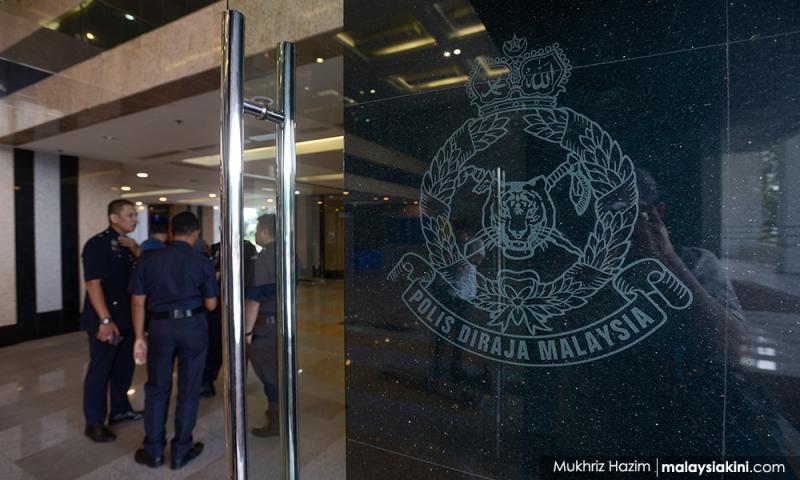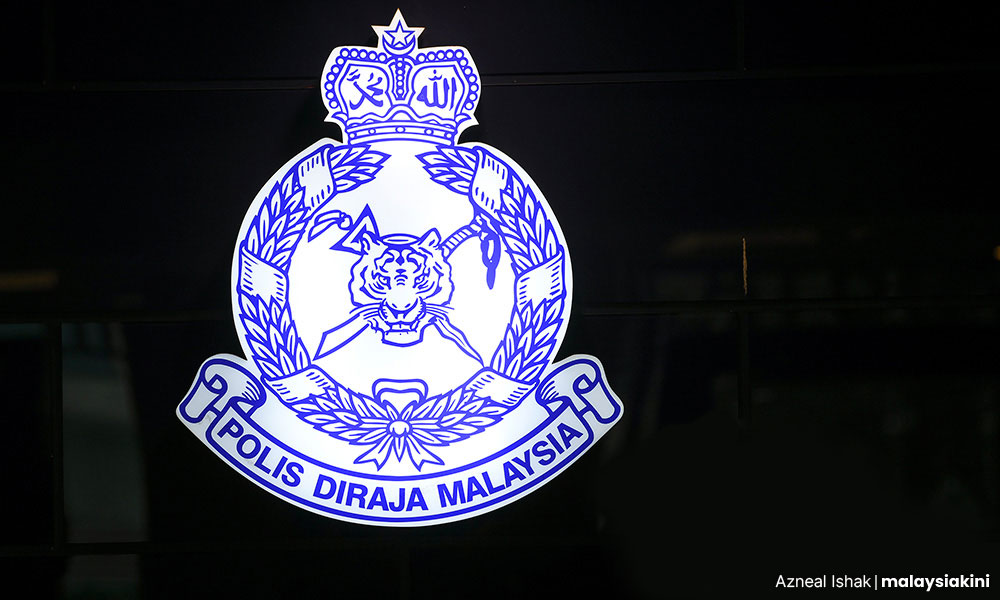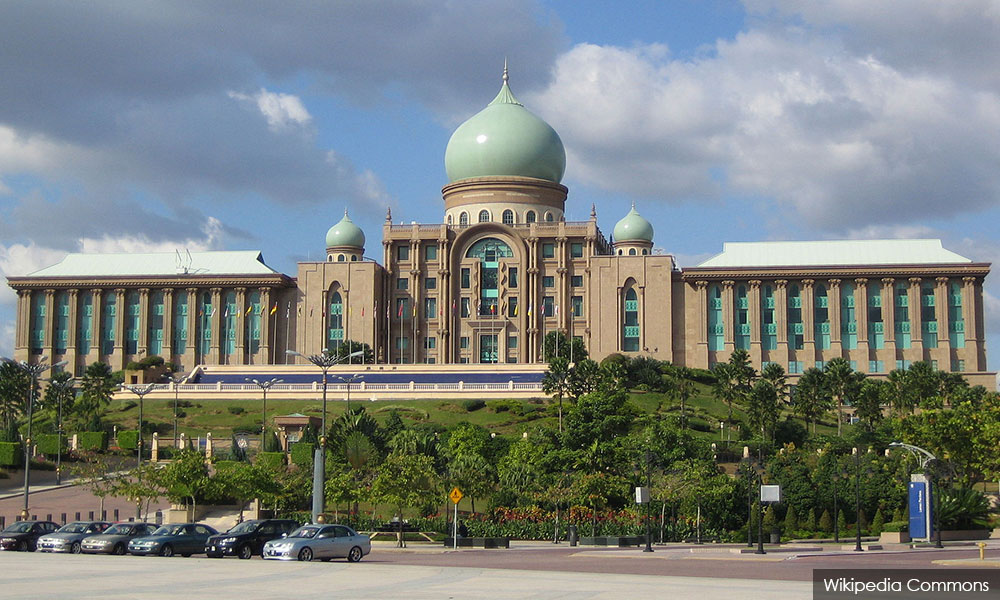
Andrew Sia
COMMENT | If a woman has just had her handbag snatched, can she go to the nearest balai (police station) to lodge a report – if she is wearing a short skirt? What if she had been assaulted and her clothes are torn in the “wrong” places?
In the most recent case, a lady went to a police station in Kajang, Selangor, but was denied entry as she was wearing longish Bermuda shorts and this was against the “dress code”.
Is this what the police slogan and theme song “Sedia Berkhidmat” or “Ready to Serve” is all about?
Does this mean that the above handbag snatch victim has to beg for money to get a taxi to go home first – to change into "decent clothes" – before being allowed to enter the blessed police station?
Excuse me, is the main job of the police to curb crime? Or to police other people’s hemlines?
Is this about certain moral rules influenced by religion? In future, will non-Muslim ladies be required to wear a scarf before entering government offices? Will police stations one day become like mosques?
But Malaysia is a multiracial country with different standards of what is considered “proper”. Looking at local Chinese New Year dressing, many women would probably not be able to enter police stations, yet their clothes are perfectly acceptable for the most auspicious occasion of the year.
In other words, is the dress code of government offices influenced by the values of one racial group? Does it judge minority groups as “indecent” or even “sinful”? Oh, we hope that such lofty “righteousness’ is also applied to corruption!
In the case above, the woman was able to enter another (more rural) police station at Pekan Batu 9, Hulu Langat, while wearing the same shorts, where she was directed to lodge her report at Kajang instead.
I've had my share of being pushed around to different police stations to lodge reports, often with flimsy excuses like "sistem down" (system is down) or "printer rosak" (faulty printer). This obviously causes extra hassle and expenses for the public. “Sedia Berkhidmat”?
COMMENT | If a woman has just had her handbag snatched, can she go to the nearest balai (police station) to lodge a report – if she is wearing a short skirt? What if she had been assaulted and her clothes are torn in the “wrong” places?
In the most recent case, a lady went to a police station in Kajang, Selangor, but was denied entry as she was wearing longish Bermuda shorts and this was against the “dress code”.
Is this what the police slogan and theme song “Sedia Berkhidmat” or “Ready to Serve” is all about?
Does this mean that the above handbag snatch victim has to beg for money to get a taxi to go home first – to change into "decent clothes" – before being allowed to enter the blessed police station?
Excuse me, is the main job of the police to curb crime? Or to police other people’s hemlines?
Is this about certain moral rules influenced by religion? In future, will non-Muslim ladies be required to wear a scarf before entering government offices? Will police stations one day become like mosques?
But Malaysia is a multiracial country with different standards of what is considered “proper”. Looking at local Chinese New Year dressing, many women would probably not be able to enter police stations, yet their clothes are perfectly acceptable for the most auspicious occasion of the year.
In other words, is the dress code of government offices influenced by the values of one racial group? Does it judge minority groups as “indecent” or even “sinful”? Oh, we hope that such lofty “righteousness’ is also applied to corruption!
In the case above, the woman was able to enter another (more rural) police station at Pekan Batu 9, Hulu Langat, while wearing the same shorts, where she was directed to lodge her report at Kajang instead.
I've had my share of being pushed around to different police stations to lodge reports, often with flimsy excuses like "sistem down" (system is down) or "printer rosak" (faulty printer). This obviously causes extra hassle and expenses for the public. “Sedia Berkhidmat”?

More tellingly, it shows that the dress code is subject to the ad hoc interpretation of the guy guarding the gate. This gives them power probably above their pay grade, elevating them into little Napoleons.
Public servants?
Yet, the police are supposed to be "public servants", whose salaries are paid by taxpayers – of every race. Can minority races then partly deduct their taxes because their values are ignored or looked down upon? After all, remember the motto – no taxation without representation!
Of course, it’s not fair to tar every cop with the same brush as there are many polite and kind police personnel. One assumes, they will overlook such dress codes when appropriate, for example, in the snatch theft case above.
Some police stations are also considerate enough to provide sarong or jackets so that ladies can “cover-up”. But the root problem is that these pesky dress codes remain.
Or is there an issue with Kajang? In July 2021, four cops, including the station chief, were suspended for partying with four other women in a “special room” at the police station there.
Several bottles of suspected ketum juice, bottles of liquor, speakers, disco lights, a microphone and television were confiscated. And this was during the strict movement control order time imposed due to Covid-19.
Is this just an isolated incident? Yet just last month, a police inspector was accused of raping a girl inside a police station in Kedah, after she had gone there to lodge a report that her stepfather had allegedly raped her. It was later reported that the inspector was charged in court.
While setting up the Independent Police Complaints and Misconduct Commission, or IPCMC, (recommended by a royal commission over 15 years ago) to clean up the force requires serious political willpower (hello, Home Minister Saifuddin Nasution Ismail), controversial dress codes are far easier to deal with.
For starters, they are not really legal. Beruas MP Ngeh Koo Ham, a lawyer, pointed out last May, there is no law giving government officers power to insist on dress codes for the public.
But I am sure the little Napoleons can come up with creative ways to make the codes official. So we have to address the mindset behind it.

Home Minister Saifuddin Nasution Ismail
Apart from sensitivities over female skin, even men are affected. My friend’s neighbour was told to go home and change into long pants before lodging a police report, as his Bermuda shorts were not allowed.
Feudal disease
This, I fear, is a symptom of a deeper disease, of putting a priority on “proper” dressing, rather than doing a proper job (reducing crime). It’s about looking at the packaging, rather than the substance, the glossy veneer, rather than the core issue. It’s a shallow value system.
Imagine a hawker, farmer or labourer who gets robbed. Let’s say his place of work is just next to a police station. He wears shorts because he works hard in a hot environment. Yet, under these ridiculous dress codes, he has to go home first, through traffic jams perhaps, to change into long pants before he can lodge a police report!
Whatever happened to the dignity of good old sweaty labour? What if an Orang Asli wants to make a police report? Since when did police stations become five-star hotels where one has to “dress properly” before one can enter?
I am sorry, but this is a symptom of trying to elevate government offices from being places of humble service to high and mighty “temples” where the rakyat have to dress up to show “respect”.
The role of public servants is turned around, and it is instead the rakyat who have to bow in nervous supplication, to cater to the “face” and “dignity” of officials big and small.
Could this be part of the larger sickness of officialdom in Malaysia, where modest achievements are inflated? With stiff rules and dress codes? A mindset from the top for decades by egoistic government ministers who behaved like grand feudal lords?
Performance, not packaging
What clothes are “proper” anyway? As Ngeh noted, a lawyer told him how her knee-length skirt was acceptable in court but not at an Education Department office. To worsen matters, he added that it’s not even civil servants who decide on this, but whoever is in charge at the guardhouse.
When you go to Australia, the police personnel wear shorts in the hot summer months. Men in Malaysia wear them regularly nowadays to the kopi tiam. It is attire that suits our hot tropical climate, rather than pretending that we live in “classy” Oxford Street, London.
Apart from sensitivities over female skin, even men are affected. My friend’s neighbour was told to go home and change into long pants before lodging a police report, as his Bermuda shorts were not allowed.
Feudal disease
This, I fear, is a symptom of a deeper disease, of putting a priority on “proper” dressing, rather than doing a proper job (reducing crime). It’s about looking at the packaging, rather than the substance, the glossy veneer, rather than the core issue. It’s a shallow value system.
Imagine a hawker, farmer or labourer who gets robbed. Let’s say his place of work is just next to a police station. He wears shorts because he works hard in a hot environment. Yet, under these ridiculous dress codes, he has to go home first, through traffic jams perhaps, to change into long pants before he can lodge a police report!
Whatever happened to the dignity of good old sweaty labour? What if an Orang Asli wants to make a police report? Since when did police stations become five-star hotels where one has to “dress properly” before one can enter?
I am sorry, but this is a symptom of trying to elevate government offices from being places of humble service to high and mighty “temples” where the rakyat have to dress up to show “respect”.
The role of public servants is turned around, and it is instead the rakyat who have to bow in nervous supplication, to cater to the “face” and “dignity” of officials big and small.
Could this be part of the larger sickness of officialdom in Malaysia, where modest achievements are inflated? With stiff rules and dress codes? A mindset from the top for decades by egoistic government ministers who behaved like grand feudal lords?
Performance, not packaging
What clothes are “proper” anyway? As Ngeh noted, a lawyer told him how her knee-length skirt was acceptable in court but not at an Education Department office. To worsen matters, he added that it’s not even civil servants who decide on this, but whoever is in charge at the guardhouse.
When you go to Australia, the police personnel wear shorts in the hot summer months. Men in Malaysia wear them regularly nowadays to the kopi tiam. It is attire that suits our hot tropical climate, rather than pretending that we live in “classy” Oxford Street, London.

Ah, but then again, our civil servants like to wear their jackets in “ultra-cold” air-conditioned offices, never mind the cost of electricity.
This reminds me of a past era when our schools were better, yet students just wore shorts. Sadly, as our education system declined, the stifling long pants, ties and blazers blossomed.
One hopes that this obsession with dressing up will disappear with the example set by Prime Minister Anwar Ibrahim to do away with that colonial legacy - neckties – and get down to work for the rakyat.
Of course, some people, just to score some cheap points, will claim, “Oh, so it’s okay to go into a police station wearing a bikini.”
Please, spare us such absurd exaggerations. The standard of decent dressing should be based on what is accepted generally in society.
So what is fine at the shopping mall, coffee shop and town streets, should also be fine at our "pejabat kerajaan" or government offices.
After all, shouldn’t they reflect the society they serve? Unless they feel they are “raja” or kings over the rest of us?
ANDREW SIA is a veteran journalist who likes teh tarik khau kurang manis. You are welcome to give him ideas to brew at tehtarik@gmail.com

"Is this about certain moral rules influenced by religion? In future, will non-Muslim ladies be required to wear a scarf before entering government offices? Will police stations one day become like mosques?"
ReplyDeleteComment: of course the moral values displayed are due tobonecreligion; and let's not be coy, we are talking about islam.
The day may yet come when women of other minority religions must wear the head scarf EVERYWHERE and not limited to government offices, including police stations.
We will take note the Home Minister will remain silent. And life goes on, the little napoleons will be emboldened by what the IGP has said.